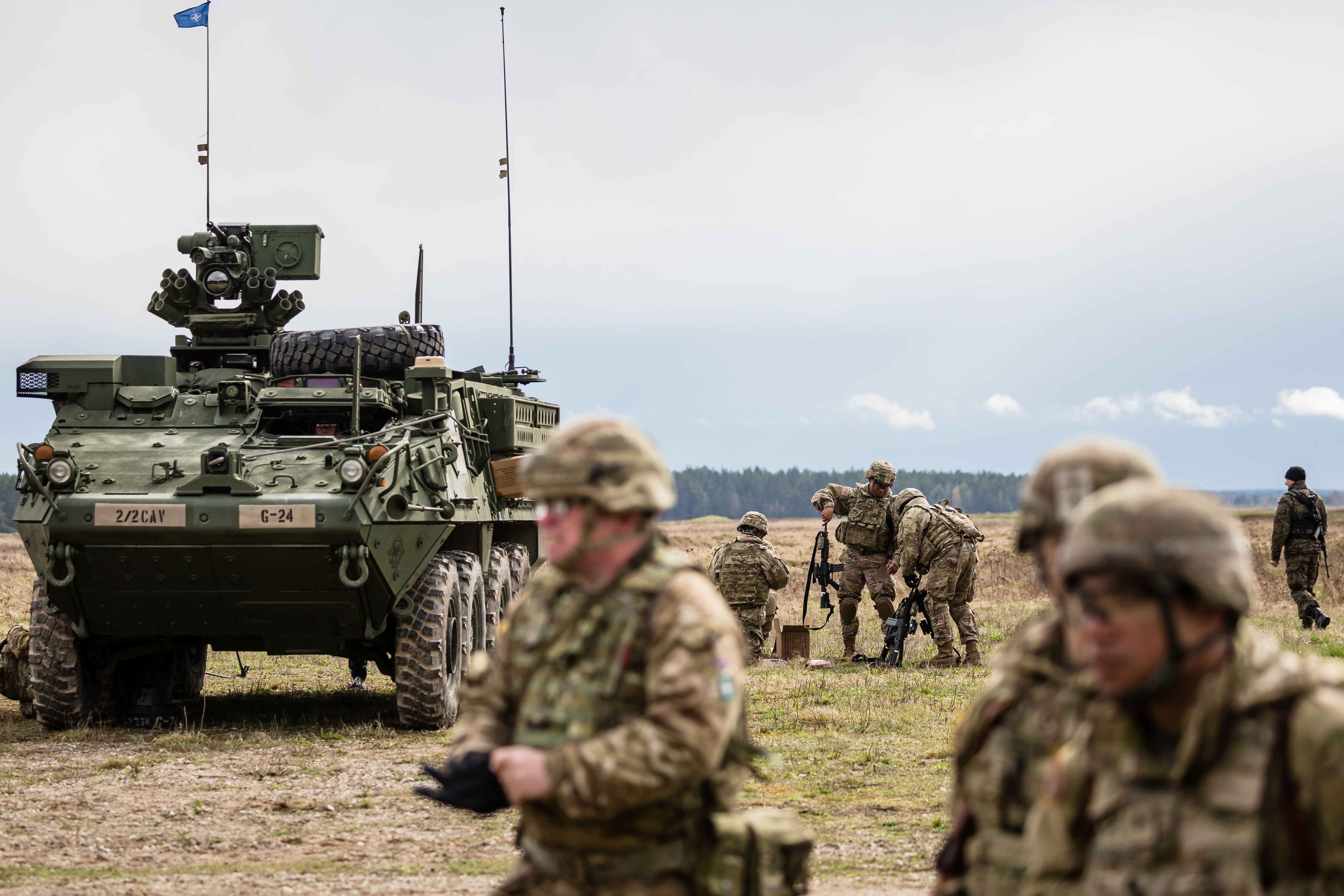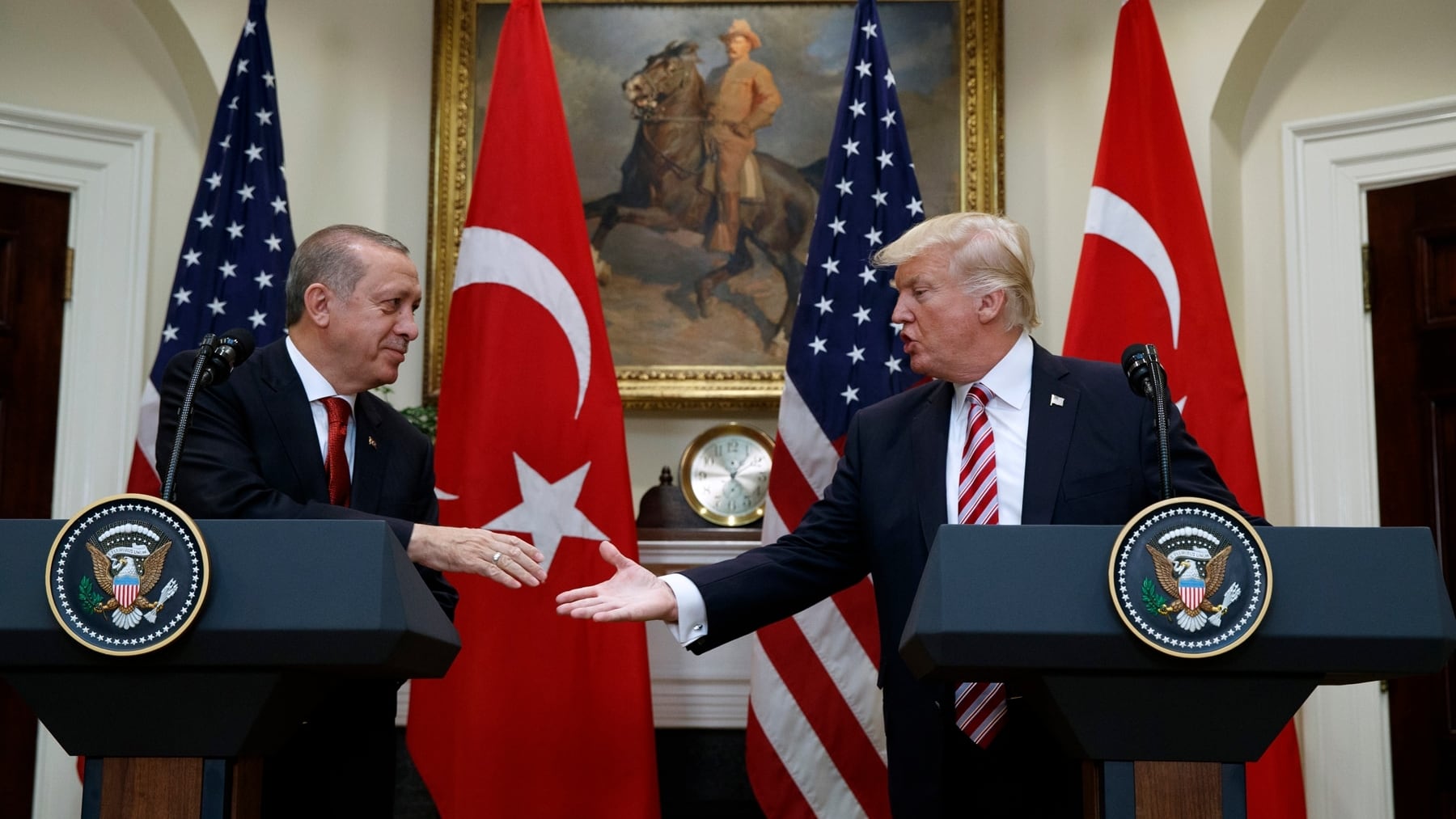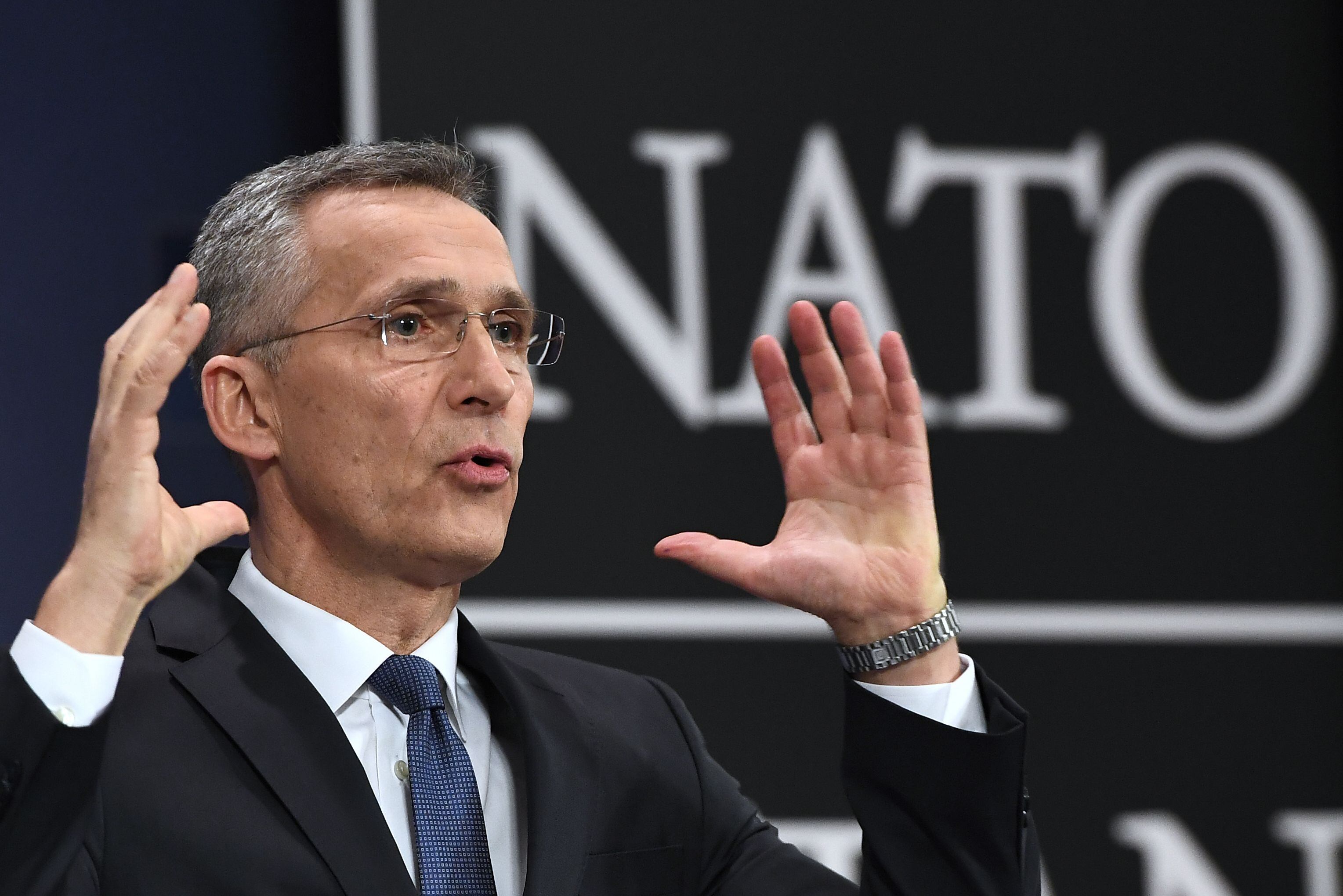WASHINGTON — NATO Secretary-General Jens Stoltenberg used an unprecedented address to Congress on Wednesday to acknowledge strains in the pact and to add pressure on Russia to return to compliance with the Intermediate Nuclear Forces Treaty.
His remarks, as NATO celebrates its 70th anniversary, vaguely touched on President Donald Trump’s questioning of the value of NATO and admitted the strength of the alliance is in question, amid divisions over trade, energy, climate change and the Iran nuclear deal.
“We have to be frank that questions are being asked on both sides of the Atlantic about the strength of our partnership,” Stoltenberg said, adding: “This is democracy, open discussions and different views is not a sign of weakness, it is a sign of strength.”
RELATED

Stoltenberg, a two-time prime minister of Norway and the first NATO chief to address a joint meeting of Congress to emphasize the historic bonds that have enabled the United States and its European partners to preserve peace — and also new challenges from Russia since its annexation of Crimea in 2014.
Stoltenberg acknowledged that Russia is developing missiles outside the Cold War-era INF Treaty, but said NATO has no intention of deploying land-based nuclear missiles in Europe or mirroring Russia missile for missile or tank for tank. He seemed to reaffirm support for America’s planned withdrawal from the pact, meant to pressure Moscow back into compliance.

“Time is running out,” Stoltenberg said. “We do not want a new arms race. We do not want a new Cold War, but we must not be naïve. An agreement that is only respected by one side will not keep us safe."
The secretary general denounced a laundry list of Russian behavior, to include “a massive military buildup from the Arctic to the Mediterranean and from the Black Sea to the Baltic, the use of military grade nerve agent in United Kingdom, support of the regime in Syria, consistent cyber attacks on NATO allies and others— targeting everything from Parliament — sophisticated disinformation campaigns, and attempts to interfere in democracy itself."
RELATED

NATO’s response, he said, has been the biggest reinforcement of allies’ collective defense in decades, to include increased readiness of the pact’s forces, modernizing its command structure and cyber defenses—and stepped-up support to non-NATO partners, Georgia and Ukraine.
In a nod to the president and his friends in Congress, Stoltenberg echoed Trump’s call for allies to spend more, and he said Trump’s message is “having a real impact.” He also emphasized the alliance as a boon to America’s national security and its economy.
“Our desire for a peaceful world is not enough, we must act and invest to make it so,” he said.

Trump has sharply criticized other NATO members, including Germany, for not meeting alliance-agreed spending targets. On Tuesday, however, he praised the generally upward trend in spending among the European allies. But he hounded them to pay even more, saying America still shoulders a disproportionate share of the cost of protecting Europe.
In a meeting at the White House, Trump and Stoltenberg had kind words for one another. But in the past, Trump has called NATO “obsolete” and suggested he might pull the U.S. out of the alliance if member nations didn’t significantly boost their defense spending.
“We’ve worked together on getting some of our allies to pay their fair share,” Trump told reporters. “At some point, it’s going to have to go higher.”
RELATED

Trump took credit for the increased spending. However, spending by the 29 NATO countries, which dropped after the end of the Cold War, has actually been rising since 2014 — before Trump took office.
“Prior to our getting here, NATO’s spending was going way, way down,” Trump said. “It was just a one-way road down. And since I became president ... it’s been a rocket ship up, and we have to keep it that way.”
After Russia’s 2014 annexation of Ukraine’s Crimean Peninsula, member countries agreed to boost defense budgets and “move toward” spending 2 percent of their gross domestic products on defense by 2024. The U.S. spends about 3.4% of its GDP on defense.
Since Trump took office, European allies and Canada have added $41 billion to their defense budgets. By the end of next year, this is scheduled to rise to $100 billion, Stoltenberg said. Germany remains the main target of Trump’s ire because it plans to spend 1.5 percent, lower than the 2 percent guideline, by 2024.
The Associated Press contributed to this report.
Joe Gould was the senior Pentagon reporter for Defense News, covering the intersection of national security policy, politics and the defense industry. He had previously served as Congress reporter.






